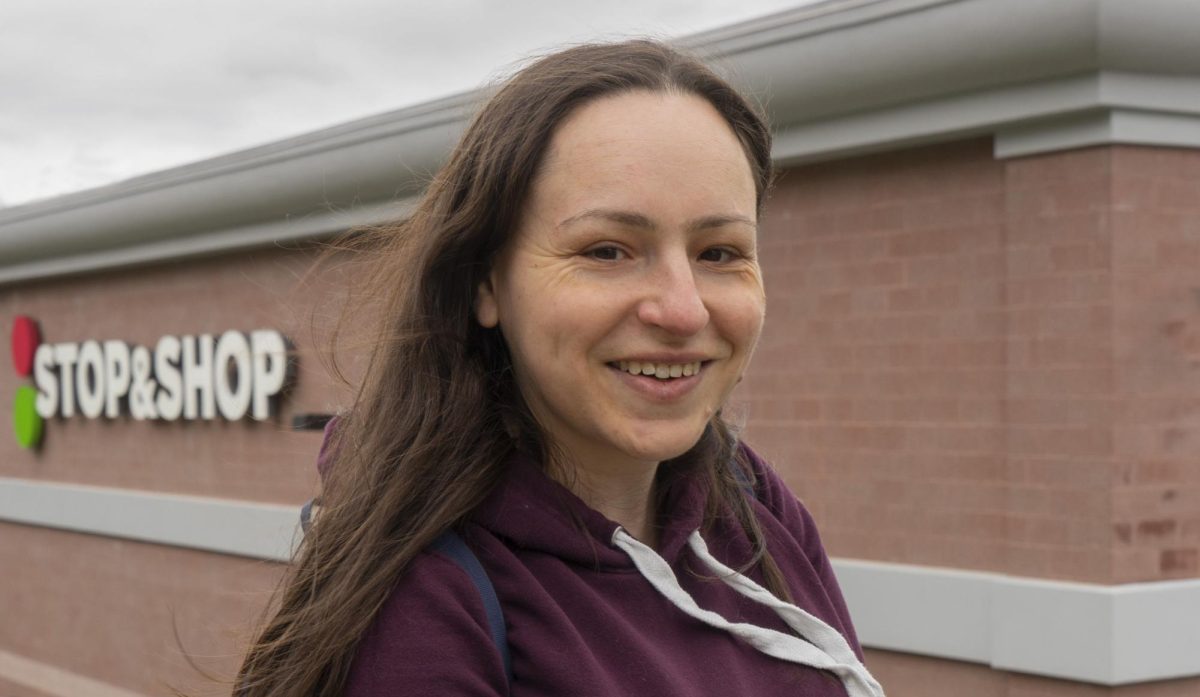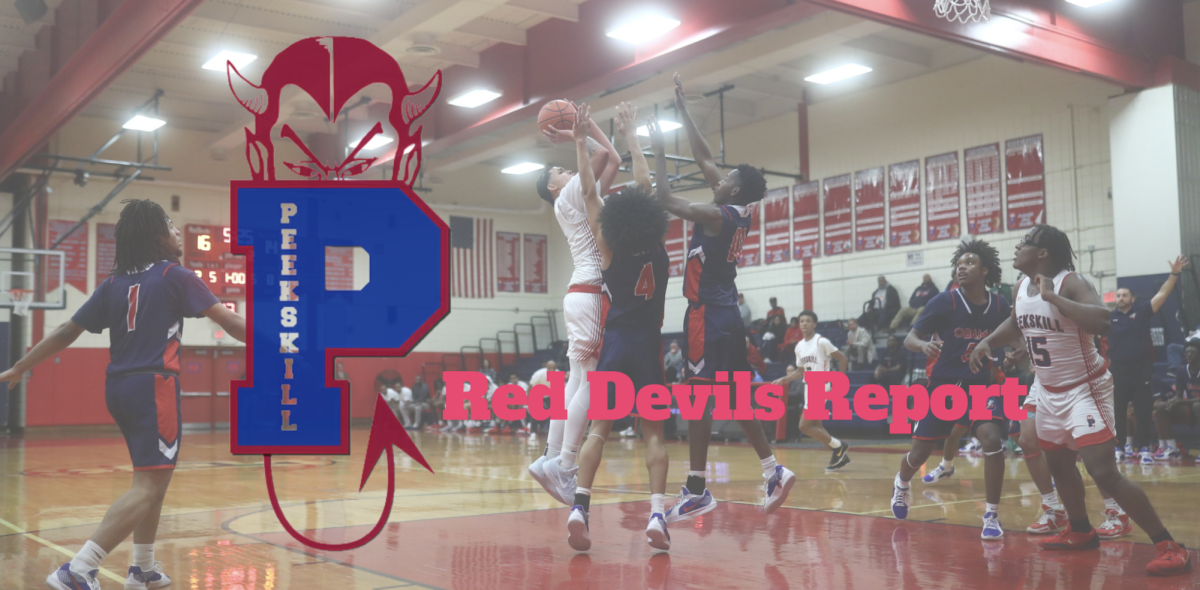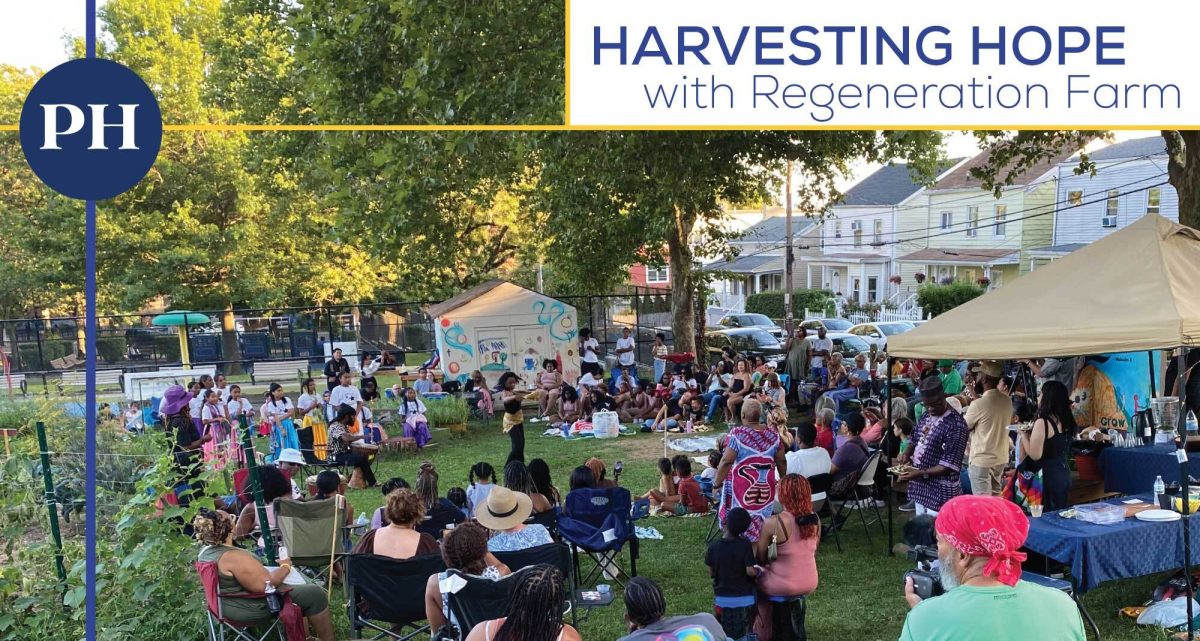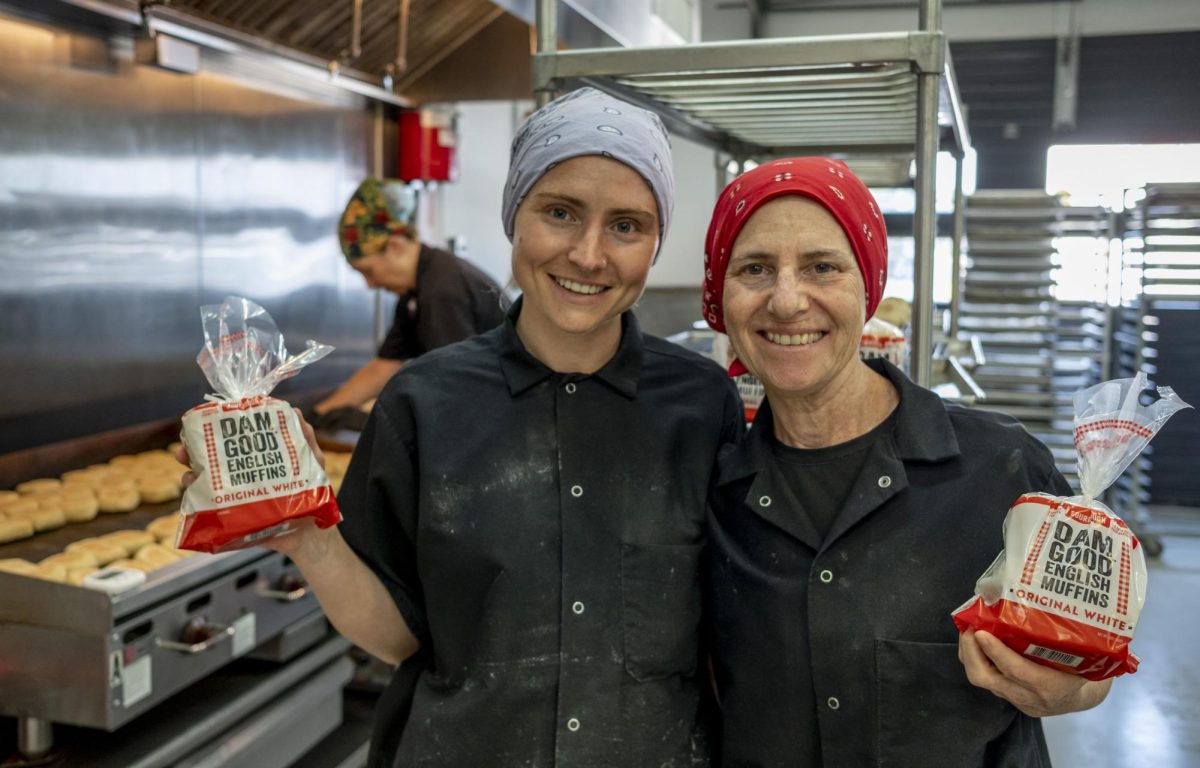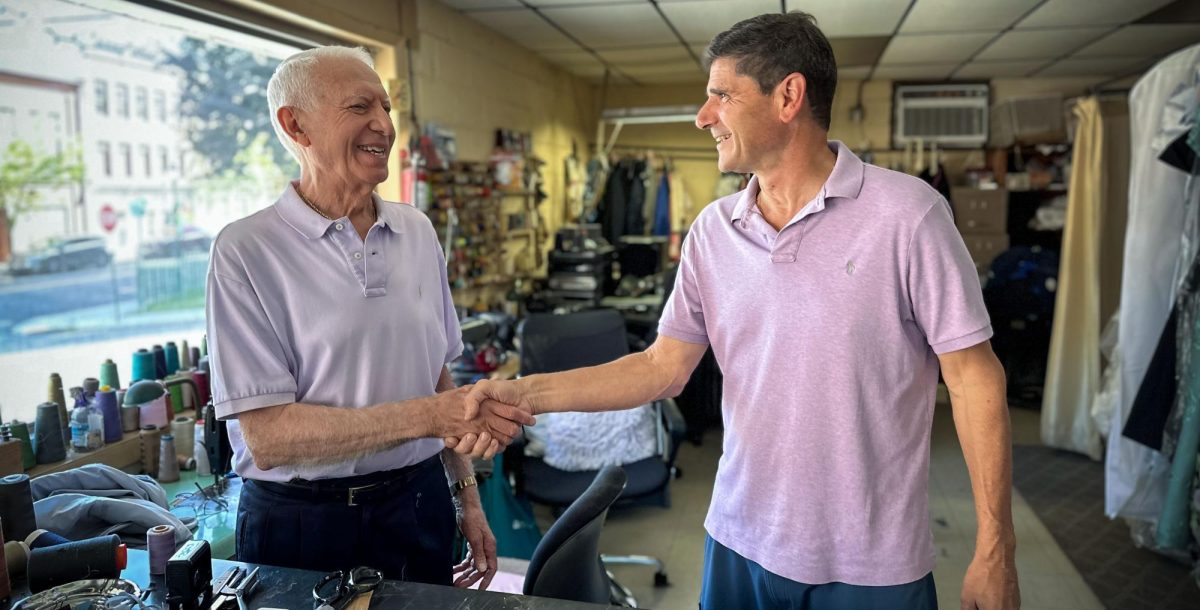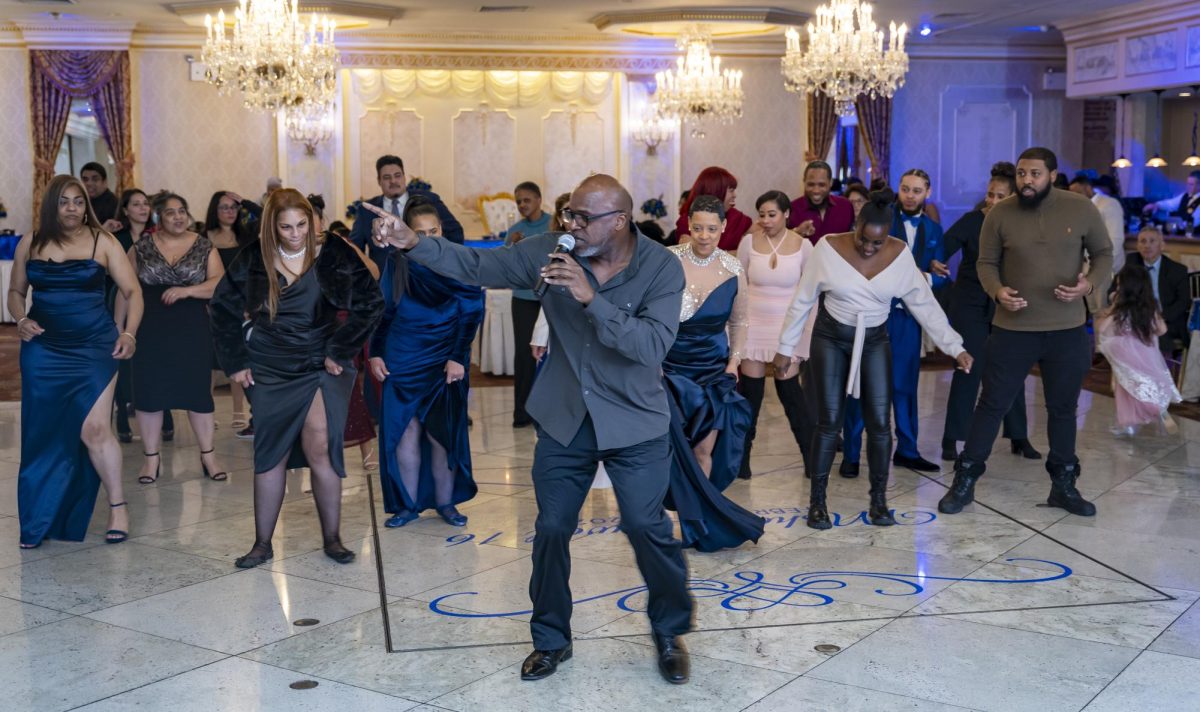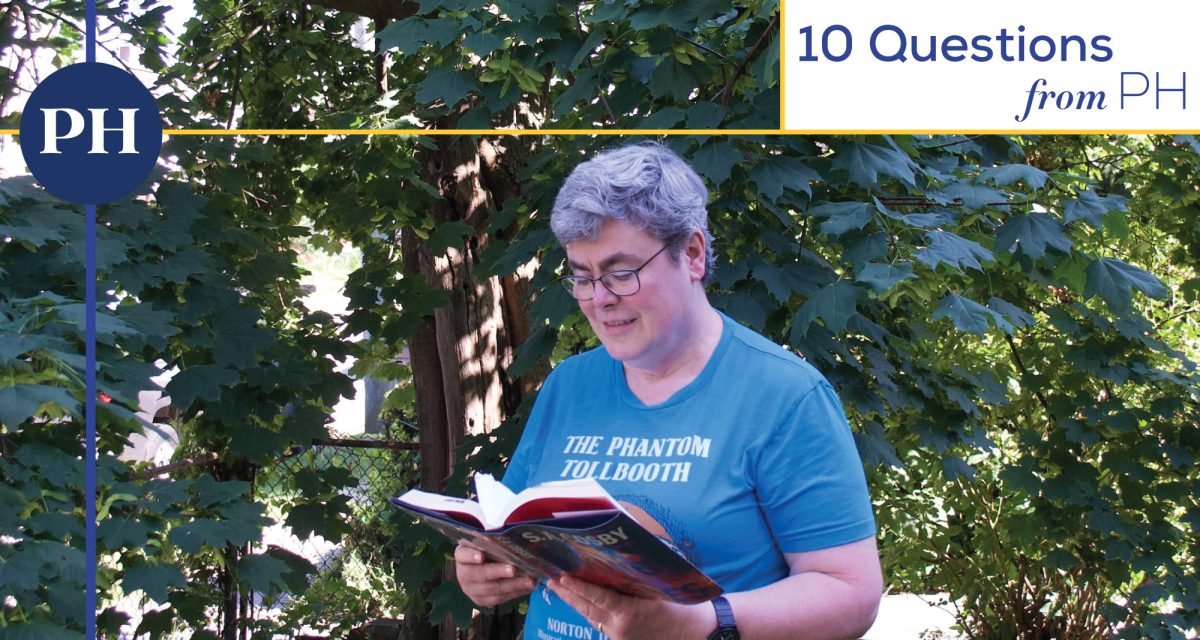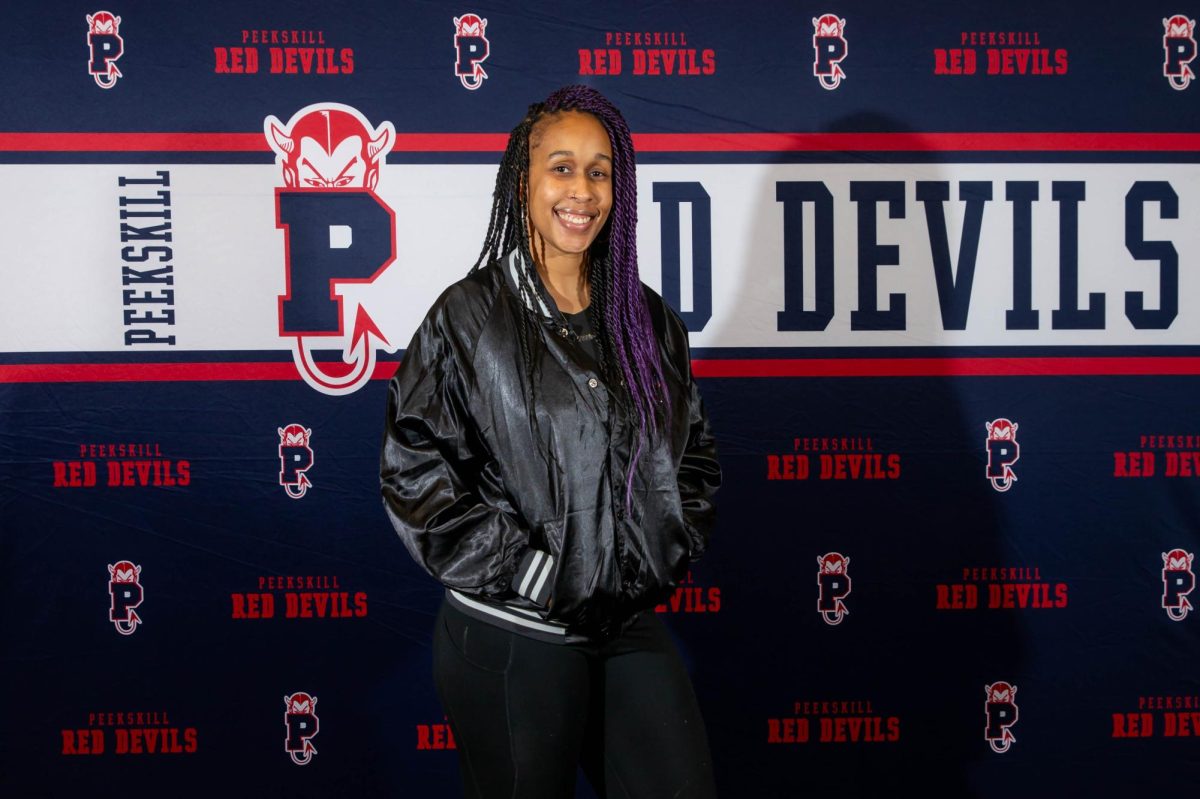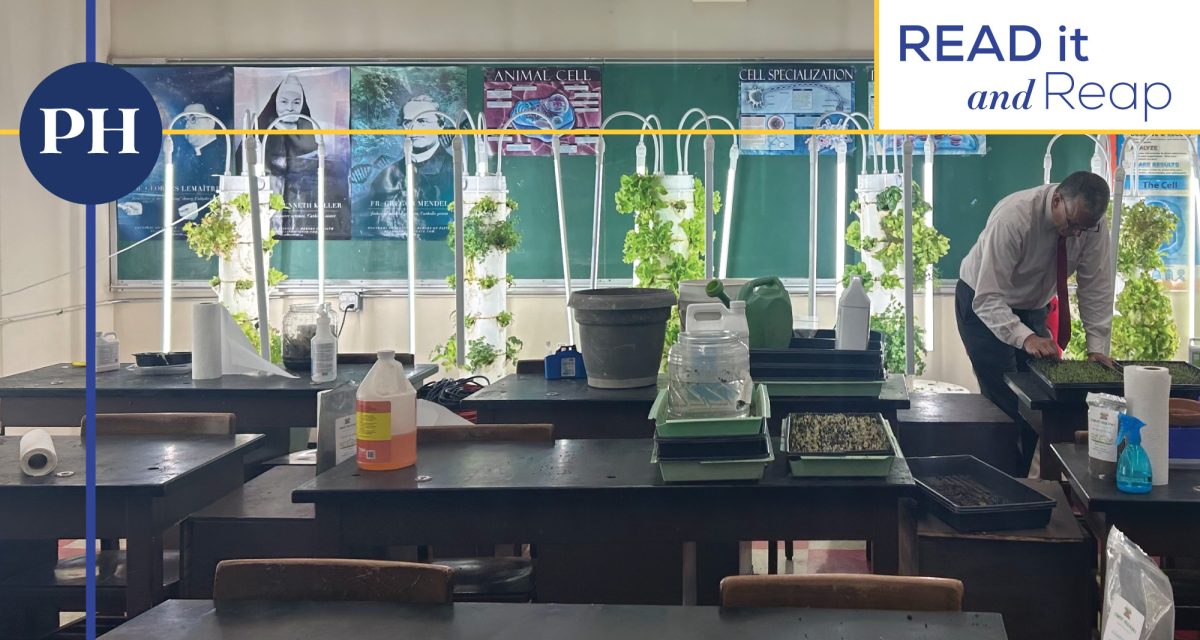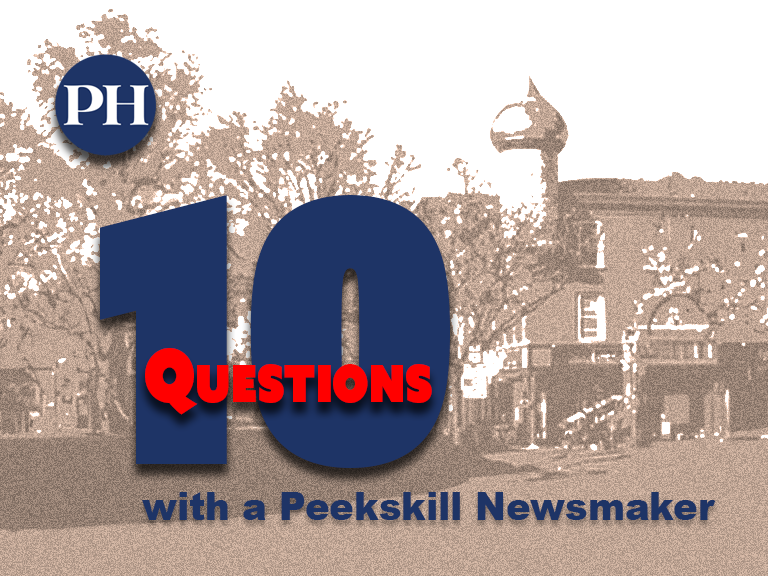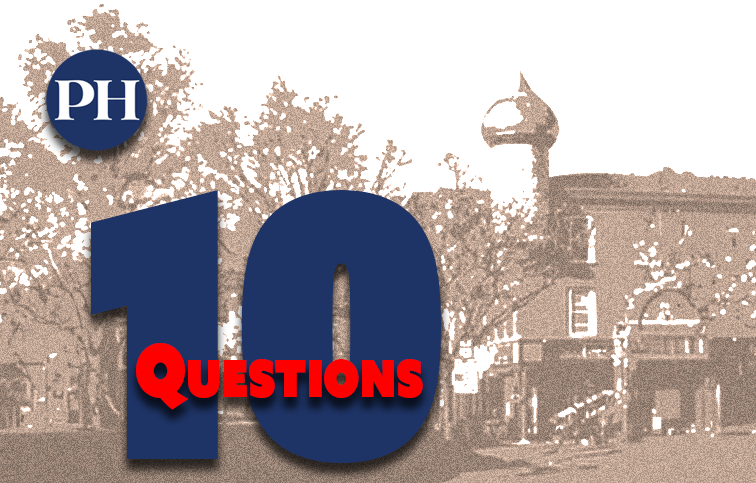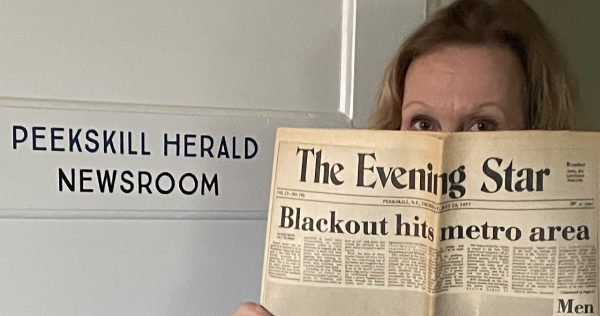To commemorate National Poetry Month, the Herald features Nina Belen Robins, a local poet who has burst onto the arts scene as a finalist for the Westchester County poet laureate last year.
Nina Belen Robins has a knack for writing poetry that is cool, quirky, and makes a difference in the world of mental health.
Her poems about the secret life of bacteria, comparing abusive relationships to the weather, navigating everyday struggles, and more, jettisoned this grocery store employee to the finals of Westchester County’s poet laureate competition last year.
“Everyone says poetry is dead but I don’t think so,” says the Peekskill resident who grew up in Manhattan. “You have to find the poet that speaks to you. My poems are like five-stanza stories.”
Robins, whose parents write books, is most inspired by her own experiences with bipolar disorder, writing prolifically about growing up in institutions and residential treatment centers, and living at the White Plains YWCA in her 20s until she was well enough to be independent.
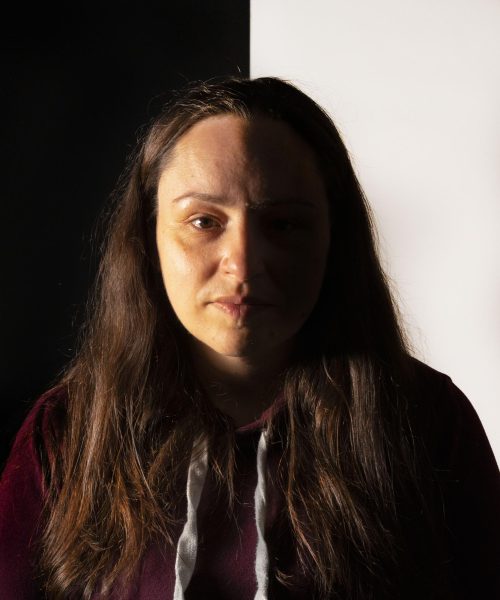
She introduces herself at poetry readings as someone who has spent her 39 years “just dealing with the fact that I’m alive.” But Robins deserves a lot of credit for finding ways to manage her illness, and sharing her story to inspire others to do the same.
The author of six self-published books of poetry – her latest Saturday Morning Serotonin – Robins hopes that people struggling with mental illness will find comfort, healing, and inspiration in her hundreds of poems.
“Look at me,” she says. “Twenty years ago I was a grocery store bagger living in a group home. Now, I’m married, have a house, cats, and a career as a poet.”
She adds: “Mental illness is nothing to be ashamed of. It’s an illness, no different than diabetes. I want to raise awareness and destigmatize mental illness. There’s a lot stigma around bipolar.”
The National Institute of Mental Health describes bipolar disorder as a mental illness causing unusual shifts in mood, energy, activity levels, and concentration, making it difficult to do day-to-day tasks.
Robins’ message of “if I can do it, so can you” is hopeful, especially since she’s doing so well. “Poetry is my life,” says Robins, who is also extremely grateful and loyal to her employer Stop and Shop. Robins has worked at stores throughout Westchester and Rockland counties for almost 20 years, most recently decorating cakes and helping run the bakery at the Beach Shopping Center store. Stop and Shop, she says, is a great employer, providing stability through her bad times, hospitalizations and medication changes. She walks to work because she never learned to drive, and happily uses that time to develop poem themes.
“This job lets me make money to support myself so I can write poetry,” she says. “I don’t write poetry for the money. Every poet has a day job.”
Her biggest wish is that her poetry helps make a difference in the world for people struggling with mental illness, which can be a very dark place.
As a child, by age 11 Robins had twice tried to kill herself. At 14, she says, her parents couldn’t provide the help she needed and sent her to schools for teens with mental issues in Connecticut and Rockland County. “My parents were very involved with me,” she says. “I just wasn’t under their roof. I credit them with my independence and everything I have today.”
When she graduated, she lived in group homes and organizations like the YWCA in White Plains, where she first began working at Stop and Shop. “I got my first job with a job coach,” she reminisces, as a bagger, moving up to cashier.
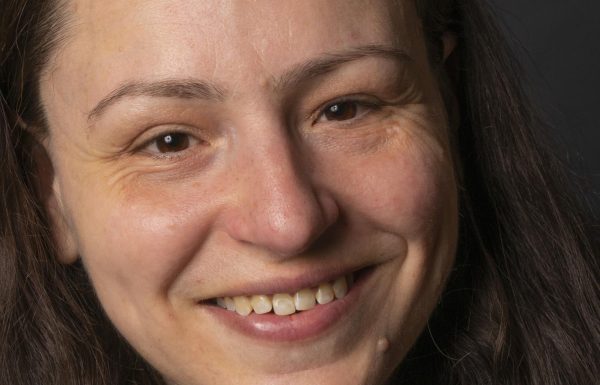
Today, she has been a poetry slam participant with the White Plains team, and was the featured poet at its recent 20th anniversary. She also leads poetry workshops at Westchester Community College. “I can get anyone to write poetry,” she says, “even 18-year-old students who hate it.”
Robins is also often tapped as a guest speaker at the college, and recently took vacation time from Stop and Shop to present at a workshop. “People always tell me that my workshops turn into group therapy,” she says. She’s also researching how to offer her workshops beyond the college, like she has at Jan Peek House. In March, the city asked her to write a poem for its Women’s History Month commemoration. The video clip below was filmed by her husband at Peekskill’s City Hall.
Her book Supermarket Diaries conveys her experiences working with grocery store customers. “My customers have a back story,” she says. “When you’re a cashier, you’re like a hairdresser; customers will talk to you. People in the book are real individuals or amalgamations who are similar.” Supermarket Diaries, a series of vignettes about customers, is very relatable, she says.
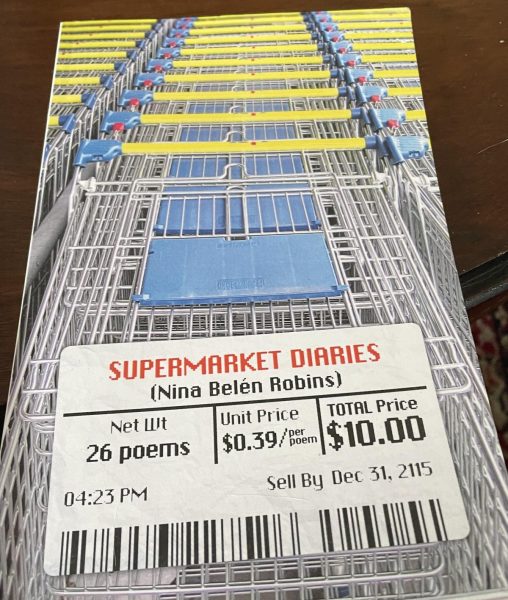
Robins has been writing poetry since fourth grade, but it turned into a passion after she enrolled in a creative writing course in 2011 to cope with loss and sadness after a relationship breakup. Her teacher said her poetry was good enough to enroll in a slam, so she began participating — and winning — in New York City. She continued doing slams and open mic nights in Westchester.
“I write all the time and am inspired by everything,” she said. “The other day I wrote a poem about killing mealworms when I was 10.” Why mealworms? “Well, the word cabinet popped up and it made me remember about the time there were mealworms in my mother’s kitchen cabinets.”
Robins says inspirational moments like this, when ideas pop into her head, have led to hundreds and hundreds of poems. “If the inspiration comes, I have to write it down. If you don’t write it down, you’ll forget. You have a very short window.” Admittedly, much of her writing is spontaneously done on her mobile phone, and she often comes up with ideas while walking to work.
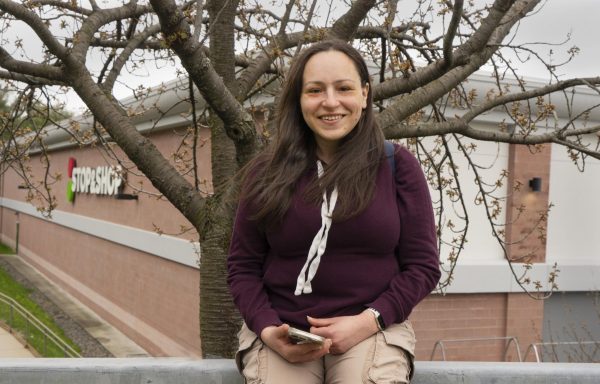
Robins was first discovered as a poet, she says, when a Peekskill area writer requested her submission in a 2022 writing event. “My husband encouraged me to enter, and I was one of three people chosen to read my poetry. My poem was displayed on the wall at the Beanrunner Café in downtown Peekskill.” She was also encouraged to enter in the 2023 competition for Westchester County’s poet laureate, and was a finalist. “It was super-exciting process and opened a lot of doors. I felt like I won without winning.”
“It’s been a whirlwind,” she says. “I’ve been through a lot but I came out on the other side. I lost 20 years of my life due to illness. I never went to college. I can write poetry. As much as I wish I was normal and hadn’t gone through those tough 20 years, it’s why I am who I am, and why I can help people the way I want to.”
Her book A Bed With My Name on It describes her journey through hospitals and institutions. “Having bipolar is tough. Imagine being a teenager with this illness. It’s not fun.” Imagine, she adds, finding comfort and stability in something as small as having a bed with your name on it.
Through it all, she’s most thankful to her husband, Dion Calabro, who she met at Stop and Shop, for his support. “He inspires me and gives me writing prompts.”
To commemorate National Poetry Month in April, Robins is writing one or two poems a day. One recent idea came from her husband, when he suggested she write about “why we love the things that kill us.” She writes, “My husband has fallen in love with such a dismembered wife whose heart beats so fast he can feel it in his veins.”
“I want to use my poetry to help as many people as possible. I want people to know that having bipolar is OK and we’ll make it. We’re all survivors.”
Bacteria
By Nina Belen Robins
Sometimes I wonder if bacteria pray.
Swim along their host and wonder where they came from.
Thank the body where they live for the warmth they call home.
Mourn the death of their loved ones when their time is up or when the medicine works or when their host dies.
I wonder if the bad bacteria make war with the good, if they can tell the difference.
If there are battles for areas of skin, for food.
If the famine of cleanliness wipes out entire colonies.
If they wonder where sanitizer comes from.
See immunity as evolution.
Rejoice in tolerance for antibiotics, claim death of weaker varieties as natural selection.
I wonder if bacteria come in race, have hierarchy, call the stronger ones leader,follow them blindly
Can see outside the body, know we are aware of their presence, feel guilty when we medicate and obliterate them.
Preach that we know which ones we punish, \try to change the ones they blame.
I wonder if they call us God. Their big world a dot, a crevice, a membrane.
We are giant and powerful and almighty
I wonder if they know we are smaller than so much else. Fallible.
Just as fragile as they are, just as mortal.
That we call the space we live on earth, universe.
That we are born, and die, and damage and fight and love and prey and kill and cleanse.
That we are small beings in huge spaces.
That we get wiped out with famine and disease.
That we do not know where we came from.
That we also are so small, on a bigger being, in a big space.
I wonder if they know we pray.


